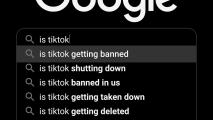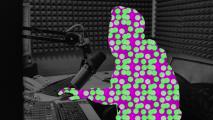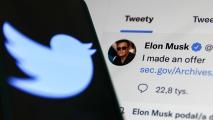Field: Misinformation
How consensus can undermine science
The main objective of consensus statements appears to be to reduce doubt, which may stifle scientific inquiry.
How proof-of-human tech could save the internet
Sam Altman’s World Network uses iris-scanning Orbs to give people a way to prove that they are people — and not AIs — online.
America tried to ban fake photos in 1912
Mistakes made by the US government 100 years ago could help us determine the best way to regulate AI-manipulated images and videos today.
Can humans purge the bots without sacrificing our privacy?
A group backed by Sam Altman is pursuing the creation of "personhood credentials" that would prove an internet user is a real person.
Constitutional warning shot for social media “deplatforming” laws
Can the government tell private websites what they have to publish?
Hugo Mercier says we’ve been misinformed about misinformation
Cognitive scientist Hugo Mercier argues the problem isn’t that people are too gullible but too stubborn.
How the TikTok case pits national security against freedom of speech
Whether the video-sharing app TikTok is banned or not, it will continue to add fuel to the fiery debate on freedom of speech.
How patients are using technology to kick-start a healthcare revolution
Susannah Fox, former chief technology officer for the HHS, explains how technology can empower a patient-led healthcare revolution.
New voice cloning AI lets “you” speak multiple languages
Voice cloning AIs are gaining more abilities, while the amount of audio needed to replicate a person’s voice is shrinking.
AI is now DJing radio stations
GPT-3, the OpenAI tech behind the hugely popular AI chatbot, ChatGPT, is now being used to automate radio DJing.
Today, people fear Twitter. In the 1850s, they feared telegrams
Telegrams elicited the exact same concerns, including the spread of misinformation, “addiction” among youth, censorship, and impersonation.
An interview with ChatGPT about itself
Freethink interviews OpenAI’s ChatGPT, an AI chatbot capable of generating conversational text, code, and more in response to prompts.
What will happen if Elon Musk does buy Twitter? (Updated)
Billionaire Elon Musk is trying to buy Twitter, and if successful, he plans to make several major changes to the social media giant.
People trust AI fake faces more than real ones, research suggests
Fake faces created by artificial intelligence (AI) are considered more trustworthy than images of real people, a study finds.
How Ukraine has defended itself against cyberattacks – lessons for the US
Russian hackers stepped up their efforts against Ukraine in the run-up to the 2022 invasion, but with notably different results.
Can we stop “deepfake geography”?
To highlight the problem of “deepfake geography,” University of Washington researchers built AIs to create and detect the fake satellite images.
IBM’s AI debater could help you make better decisions
IBM’s Project Debater is trained to quickly craft well-researched arguments — and the AI debater could one day improve your decision making.
Series|
Coded
Combating conspiracy in the disinformation age
What can we do about troll farms, deepfakes, and phoney headlines in the disinformation age?
Genetic evidence debunks coronavirus conspiracy theories, scientists say
A team of researchers analyzed the COVID-19 coronavirus. Their findings debunk the conspiracy theory that the virus was lab-made.
Misinformation is as contagious as coronavirus
Fighting misinformation is now a crucial aspect of responding to disease, and health information expert Adrienne Holz Ivory explains why.
How deadly is the coronavirus? The numbers may not mean what you think.
Your guide to understanding the confusing and contradictory coronavirus fatality rates.
How to spot a deepfake
Is artificial intelligence the key to knowing what’s real?
Why did measles explode in 2019?
Humanity is locked in an arms race with diseases: we update our vaccines, and diseases evolve new ways to try to...
How science is learning to admit mistakes
A shocking amount of scientific studies can’t be reproduced. Do we need to change the culture of science?
The joy of being wrong
In partnership with John Templeton Foundation
Can practicing intellectual humility make us smarter and happier? Science says yes.
























